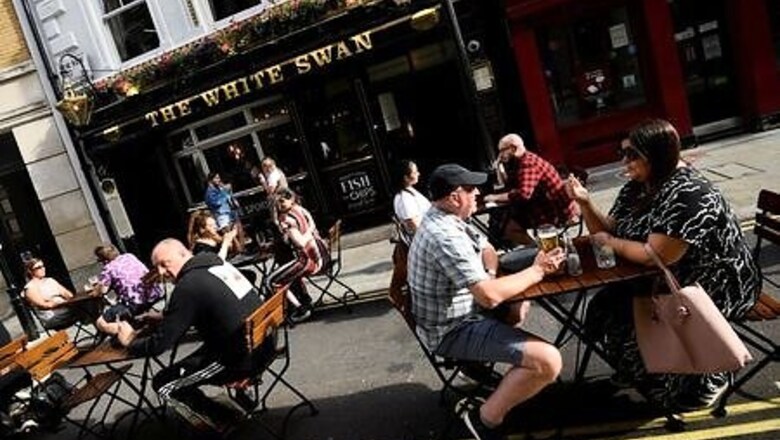
views
LONDON: Prime Minister Boris Johnson announced new restrictions on social gatherings in England on Wednesday, saying there was a clear need to act after a spike in COVID-19 infections.
Speaking at a televised news conference, flanked by his top medical advisers, Johnson said groups of more than six people would be banned from meeting, in what he called a “rule of six” that was easier to understand than previous guidance.
“I wish that we did not have to take this step, but as your prime minister, I must do what is necessary to stop the spread of the virus and to save lives,” he said.
“I will be absolutely clear. This is not, these measures are not, another national lockdown. The whole point is to avoid a second national lockdown,” he added.
The number of cases in Britain has begun to rise sharply again in recent days.
England’s Chief Medical Officer Chris Whitty said Britain’s numbers were following a similar pattern to that seen in France four weeks ago, and risked continuing to rise sharply as they had done there.
He cited Belgium as an example of a country that had seen a similar increase in cases but had managed to reverse the trend through decisive action.
“This is a clear indication that if you act rapidly and decisively when these changes are happening, there is a reasonable chance, or a good chance, of bringing the rates back down under control,” Whitty said.
Although testing is more widespread and the number of people in hospital is well below the peak of the outbreak, ministers fear it is beginning to slip out of control, particularly among people in their late teens and their 20s.
Prior to the rule of six, the limit on the number of people who could socialise together was 30.
The United Kingdom reported 2,659 confirmed new cases of COVID-19 earlier on Wednesday, up from 2,460 on Tuesday. The figures were close to 3,000 on Sunday and Monday – a sharp rise from levels of around 1,000 per day in August, attributed to high transmission among young people.
The new rules will not apply to workplaces or schools, and there will be exemptions for weddings, funerals and some organised team sports. Scotland, Wales and Northern Ireland set their own lockdown policies.
(Additional reporting by Estelle Shirbon; editing by Stephen Addison)
Disclaimer: This post has been auto-published from an agency feed without any modifications to the text and has not been reviewed by an editor














Comments
0 comment